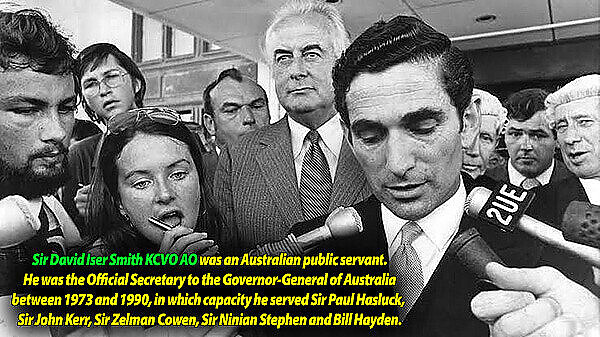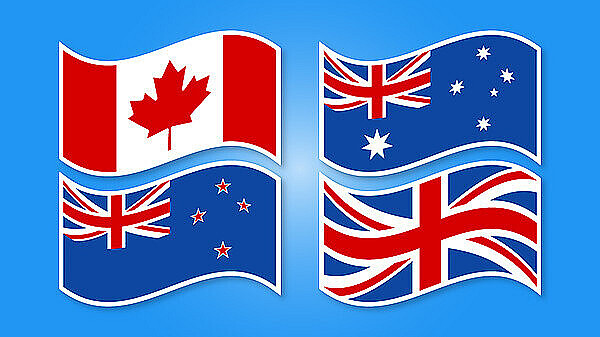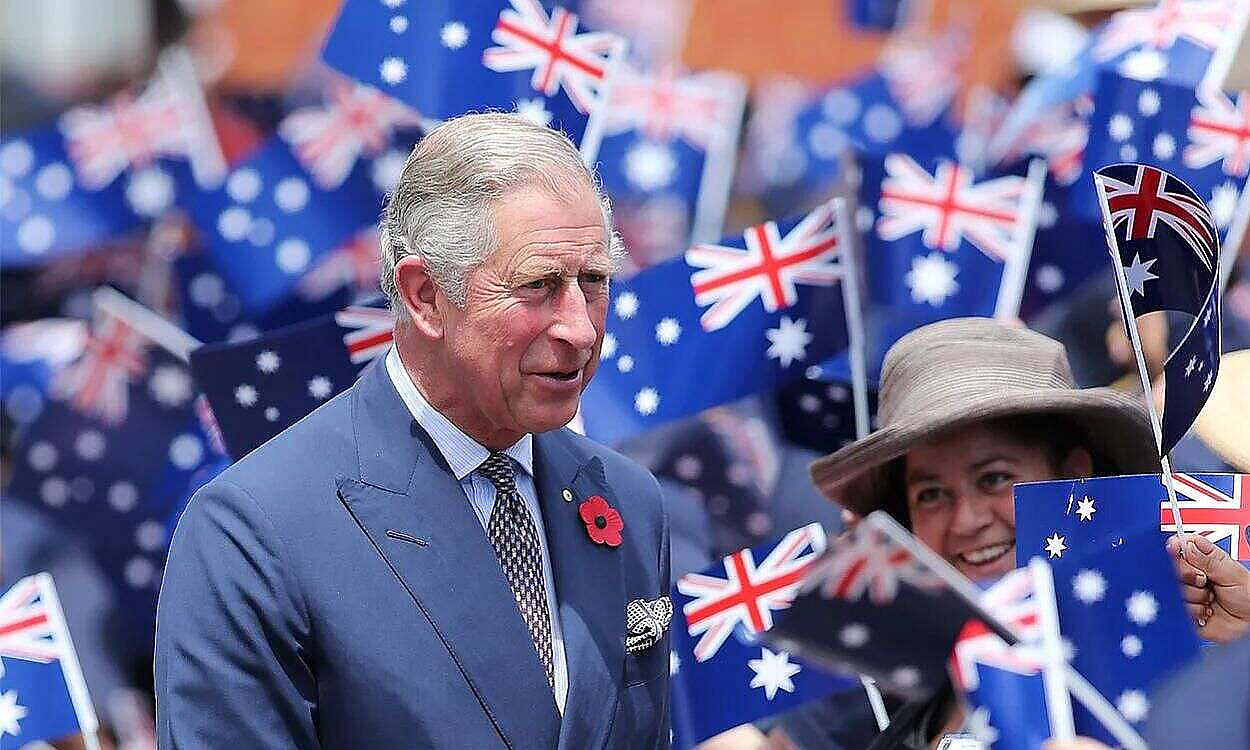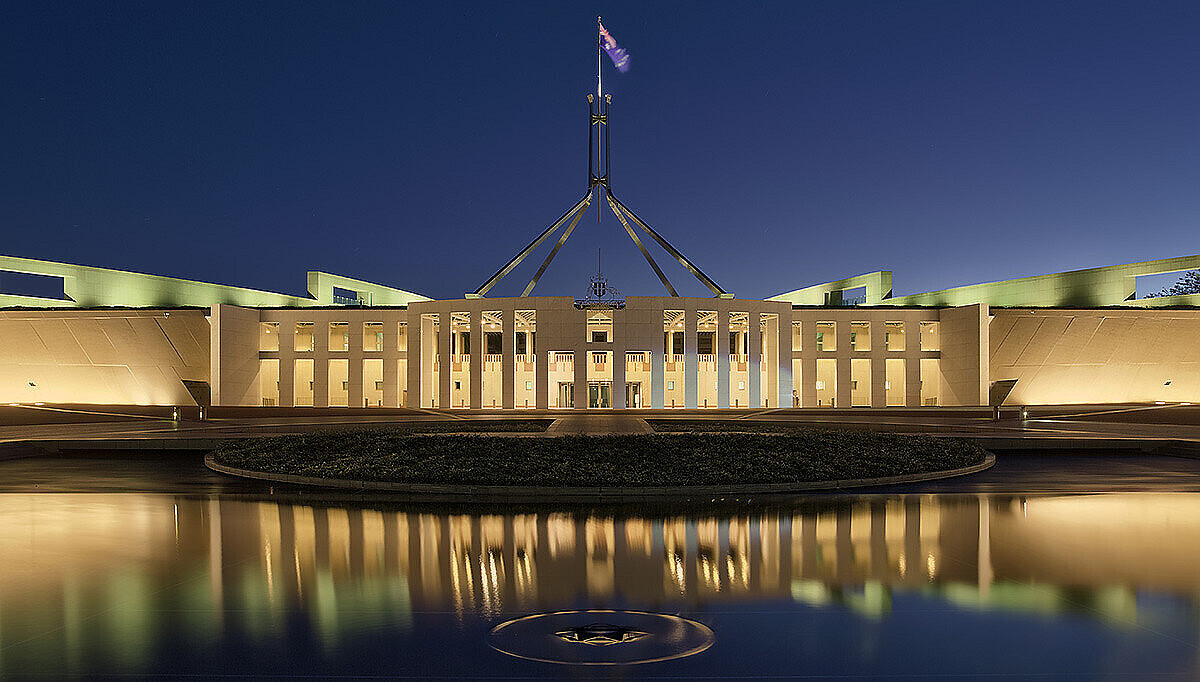Crowned Republics Compared
- Of the seven oldest continuing democracies, five are crowned republics (otherwise known as constitutional monarchies), in contrast to politicians’ republics.
- (In a politicians’ republic, either the politicians choose or play a significant role in choosing the president, or the president is an elected politician.)
- Four of those five crowned republics have King Charles III as their Sovereign: Australia, Canada, New Zealand and the United Kingdom; Sweden is the fifth.
- These five have proved more stable than the two political republics, Switzerland and the USA, which both experienced civil wars in the nineteenth century.
- The countries that fought the Axis in the Second World War – from the beginning to the end – were all crowned republics.
- And they all shared the same Sovereign, The King–Emperor George V, the father of Queen Elizabeth II and grand-father of King Charles III.
- Crowned republics do not suffer from the rigidity of the American model, which becomes evident when a move to impeach the President can paralyse the government for months.
- Crowned republics tend to be less expensive than politician’s republics in finding and funding their Head of State.
- And as the Head of State in a crowned republic is above politics, he or she does not divide the country into supporters and opponents.
- The Westminster model for a crowned republic has been successfully adopted in several other countries.
- The Swiss model has never been adopted, although Australia chose its referendum in relation to the approval of any change to its constitution.
- Other countries have adopted the US model, but it has never been successful for long, even when it was adopted in France (1848-1852)
- Crowned republics make up only about 15% of the countries of the world.
- Although few in number, crowned republics are among the world’s most democratic countries, as evidenced in various reports, e.g., the Democracy Index from The Economist, Freedom House, etc.
- Crowned republics are also among the most desirable and best-governed countries to live in.
- The evidence may be found in the United Nations Human Development Index, which has reported on human well-being for over two decades.
The HDI measures well-being through three major dimensions
- Life expectancy at birth, as an index of population health and longevity,
- knowledge and education, as measured by the adult literacy rate and the combined primary, secondary, and tertiary gross enrolment ratio and
- standard of living, as measured by gross domestic product (GDP) per capita at purchasing power parity (PPP)
- Crowned republics, although small in number, are to be found constantly among the leaders in the Human Development Index.
- Since 1980, the top country has nearly always been a crowned republic.
There are many reasons to remain a crowned republic.

The Republic Will Stop the Brain Drain, Arthritis Etc.
Sir David Smith has assembled the more bizarre reasons advanced for a republic in a paper to the Samuel Griffiths Society in 1998. Among those he listed are:
- Al Grassby, a minister of the crown in the Whitlam Labor government, told us that the monarchy was responsible for the recession of the late 1980s, for the one million Australians who were unemployed for the business excesses of that period, and for the exodus from Australia of our top scientists. (Canberra Times, 8 December 1993)
- Michael Lynch, general manager of the Australia Council for the Arts and the Opera House 1998, said that the monarchy stifles artistic talent and prevents our artists from fully expressing themselves. (Australian, 25 October 1994)
- Sir Anthony Mason, former high court judge, confessed that he started to become a Republican at the age of eight while watching a cricket Test match between Australia and England during the 1932/33 bodyline series. Sir David observes, “it would seem that he waited for sixty-five years before revealing it”. (Australian, 28 October 1997)
- Janet Holmes A Court, an Australian Republican Movement representative, told a British Chamber of Commerce delegation that she wanted a new flag and a new constitution because an Asian cabinet minister had told her that his country would help the Australian people in their struggle for independence from Britain. It also worries her that her Asian acquaintances are confused by the queen’s portrait on Australian Embassy walls. (Canberra Times, 26 March 1998, Age, 7 November 1997) It was later reported that “given her head, Janet Holmes, a Court’s republic, would experiment with radical drug cures and legalise many illicit substances, possibly even heroin”: Australian, 6 November 1997. Later she was to explain that her republicanism was not anti-British. Did she not, she said, employ hundreds of Britons in her UK operations?
- Sallyanne Atkinson, former Lord Mayor of Brisbane, former Australian Trade Commissioner to France, and an ARM delegate, said that she was Republican because she found the French “confused” by the fact that the Queen of England was also Queen of Australia. (Australian, 8 October 1997). Sir David Smith comments that he should have thought that surely the French have been more confused by the fact that, following their bloody revolution of 1789 and the execution of their monarchy, they endured the Reign of Terror, Empire under Emperor Napoleon, restoration of the Monarchy, the second French Empire, Republics One, Two, Three and Four, and the Vichy government that collaborated with the Nazis during World War II, before President de Gaulle gave them their current Fifth Republic. The Trade Commissioner, he says, might more usefully have spent her time in Paris in telling the French something of the enduring stability of our constitutional arrangements.
- Bill Ferris, former Chairman of the Board of the Australian Trade Commission and now the Chairman of the Australian Venture Capital Association, told us that the republic would present a windfall marketing opportunity for Australian exporters because our present constitutional arrangements were harmful to the overseas promotion of our products and services. According to Mr Ferris, the republic will help us gain international recognition for our technology and our inventions. It will ensure that much more venture capital than at present will flow back into our newer industries (Australian, 10 October 1997). Sir David comments: “So now we know — the monarchy is responsible for our trade deficit!” (Mr Ferris more recently argued that the change was essential to promoting investment in local corporations. (Sydney Morning Herald 16/10/98)
- Lindsay Fox, founder and chairman of Fox Group Holdings and an Australian Republican Movement delegate, together with other business leaders, saw the republic as an opportunity for Australia to “re-badge” and “re-band” itself, thus reducing the nation, its history, its constitution and its system of government to the level of a new car or a packet of detergent. (Business Review Weekly, 10 November 1997, Australian Financial Review, 24 January 1998)
- Neville Wran, former premier of New South Wales and an Australian Republican Movement delegate, told us that changing to a republic would boost jobs and invigorate Australia’s spirits (Australian Financial Review, 20th Nov 1997).
There are other examples. Former Deputy Lord Mayor of Sydney Henry Tsang claimed: “People in Asia are confused. They want to invest here or start a new business in Australia but are confused and puzzled.” He finds it embarrassing explaining to Asian business people “why Australia clings to the Queen” and then “England is a small nation on its way down . . ” (City of Sydney Times, 27 January 1999).
Simon Young, the Australian Opera and Ballet Orchestra conductor, said: “I feel very strongly about it because I’m identified as belonging to the English cultural scene, and I’m very, very adamantly Australian.” She said many “ex-pat” Australian artists who have settled in the UK are often mistakenly considered British in other countries. But Canadians in the US or in France have similar problems. The solution perhaps relates to changing their accent and their address. Or just not worrying about such an insignificant matter. (Australian, 15 March 1999).
Robert Hughes, expatriate art critic and author, said: ”Anyone who votes ‘No’ is stupid .”
Professor Alan Gilbert, then Vice Chancellor of the University of Melbourne, said that if we did not vote ‘Yes’, we would be a ”laughing stock” in Asia.
What will be next? “Republicanism, the miracle cure for arthritis”?




